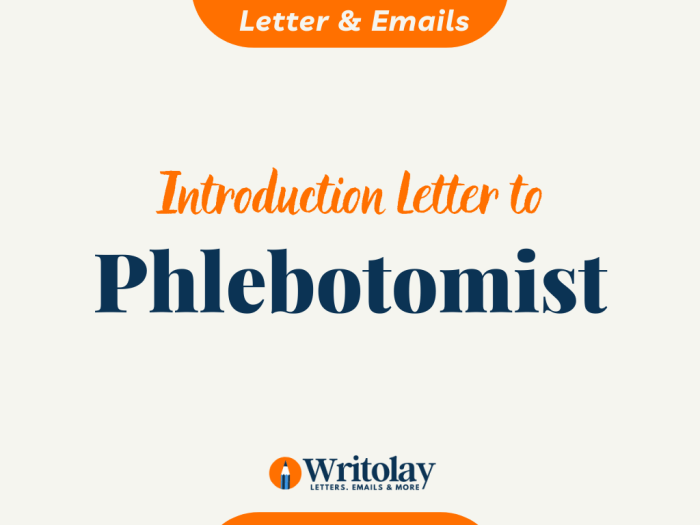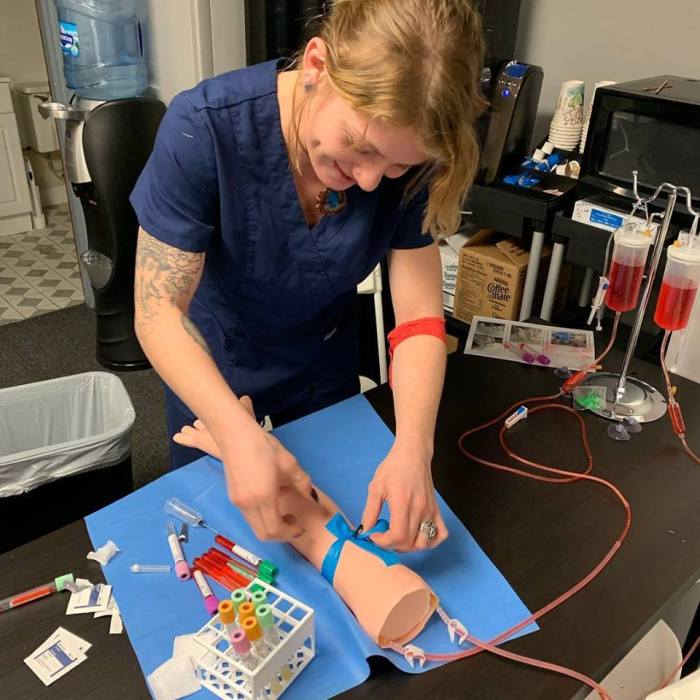Why I Want to be a Phlebotomist essay embarks on a captivating journey into the world of blood collection, revealing the motivations, skills, and rewards that shape this essential healthcare profession.
Phlebotomy, the art of drawing blood, plays a crucial role in patient care and medical research, providing vital information for diagnosis, treatment, and monitoring. As a phlebotomist, I aspire to contribute to this critical field, leveraging my technical proficiency, compassion, and unwavering commitment to patient well-being.
Understanding the Role of a Phlebotomist: Why I Want To Be A Phlebotomist Essay

Phlebotomists play a crucial role in the healthcare system by performing venipuncture and collecting blood samples for various medical purposes. Their primary responsibility involves drawing blood from patients in a safe and accurate manner, ensuring that the samples are of sufficient quality for laboratory testing.
Accuracy and precision are paramount in phlebotomy, as incorrect blood collection can lead to inaccurate test results and potentially compromise patient care. Phlebotomists must adhere to strict protocols and use appropriate techniques to minimize pain and discomfort for patients while ensuring the integrity of the blood samples.
Work Settings, Why i want to be a phlebotomist essay
Phlebotomists work in various healthcare settings, including:
- Hospitals
- Clinics
- Blood banks
- Research laboratories
- Blood donation centers
Answers to Common Questions
What are the key responsibilities of a phlebotomist?
Phlebotomists are responsible for collecting blood samples from patients, ensuring accurate and timely delivery to laboratories for analysis. They must maintain a sterile environment, prioritize patient comfort, and adhere to strict safety protocols.
What skills are essential for a successful phlebotomist?
Successful phlebotomists possess a combination of technical proficiency, communication abilities, and patient care skills. They must be proficient in venipuncture techniques, demonstrate empathy and compassion, and maintain a professional demeanor.
What educational qualifications are required to become a phlebotomist?
To become a phlebotomist, individuals typically complete a certified phlebotomy training program accredited by a recognized organization. These programs provide comprehensive training in blood collection techniques, safety protocols, and patient care.

